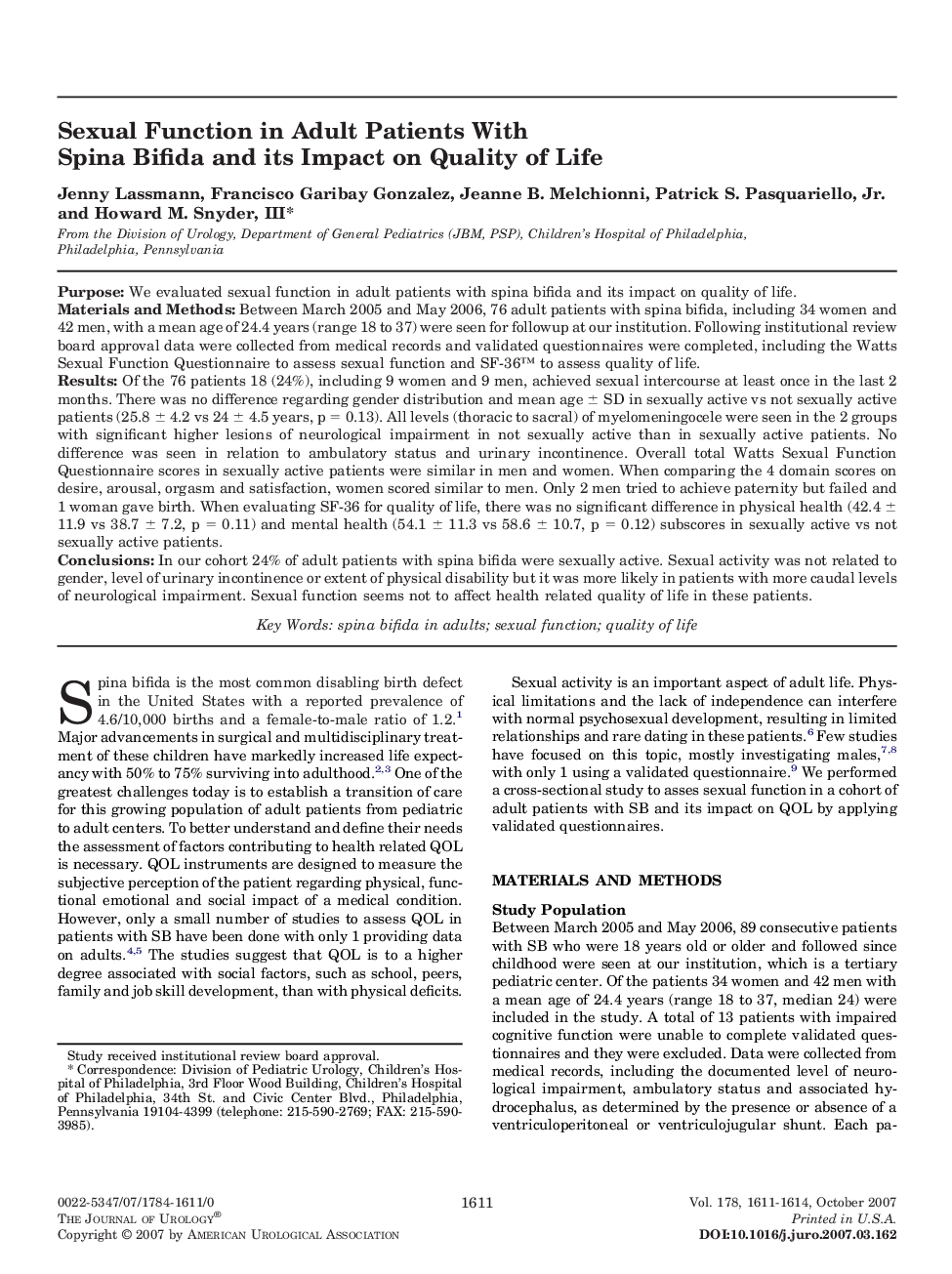| Article ID | Journal | Published Year | Pages | File Type |
|---|---|---|---|---|
| 3876998 | The Journal of Urology | 2007 | 4 Pages |
PurposeWe evaluated sexual function in adult patients with spina bifida and its impact on quality of life.Materials and MethodsBetween March 2005 and May 2006, 76 adult patients with spina bifida, including 34 women and 42 men, with a mean age of 24.4 years (range 18 to 37) were seen for followup at our institution. Following institutional review board approval data were collected from medical records and validated questionnaires were completed, including the Watts Sexual Function Questionnaire to assess sexual function and SF-36™ to assess quality of life.ResultsOf the 76 patients 18 (24%), including 9 women and 9 men, achieved sexual intercourse at least once in the last 2 months. There was no difference regarding gender distribution and mean age ± SD in sexually active vs not sexually active patients (25.8 ± 4.2 vs 24 ± 4.5 years, p = 0.13). All levels (thoracic to sacral) of myelomeningocele were seen in the 2 groups with significant higher lesions of neurological impairment in not sexually active than in sexually active patients. No difference was seen in relation to ambulatory status and urinary incontinence. Overall total Watts Sexual Function Questionnaire scores in sexually active patients were similar in men and women. When comparing the 4 domain scores on desire, arousal, orgasm and satisfaction, women scored similar to men. Only 2 men tried to achieve paternity but failed and 1 woman gave birth. When evaluating SF-36 for quality of life, there was no significant difference in physical health (42.4 ± 11.9 vs 38.7 ± 7.2, p = 0.11) and mental health (54.1 ± 11.3 vs 58.6 ± 10.7, p = 0.12) subscores in sexually active vs not sexually active patients.ConclusionsIn our cohort 24% of adult patients with spina bifida were sexually active. Sexual activity was not related to gender, level of urinary incontinence or extent of physical disability but it was more likely in patients with more caudal levels of neurological impairment. Sexual function seems not to affect health related quality of life in these patients.
